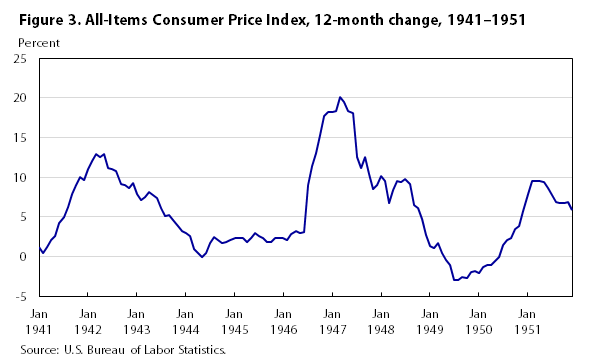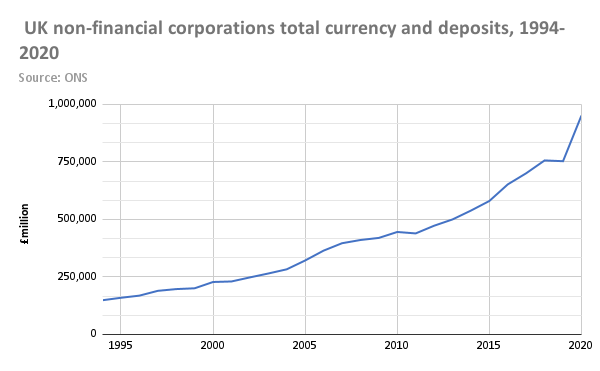Are price controls the solution to inflation woes?

December 17, 2021
Increasing the price of money through higher interest rates would be a crude and potentially damaging way of dealing with inflation, especially when it is being driven by huge rises in a few specific goods. So why not control the prices of such goods directly?
With consumer price index (CPI) inflation rising to a 10 year high of 5.1%, on Thursday the Bank of England became the first of the big central banks to raise interest rates since the start of the pandemic. The Bank did so despite its repeated admission that raising interest rates will do little to address the supply side drivers of the inflation we’re currently experiencing.
A breakdown of the latest inflation figures show that the average rise in prices is still being driven disproportionately by a few outliers, namely petrol, second hand vehicles and energy bills.
What is UK inflation made of?
Figures below sum to the 5.1% annual rate 👇 pic.twitter.com/hIa5wCMLLG
— Andy Bruce (@BruceReuters) December 15, 2021
As we’ve explored, increasing the price of money through higher interest rates would be a crude and potentially damaging way of dealing with inflation, especially when it is being driven by huge rises in a few specific goods. This begs the question: why don’t we instead control the prices of such goods directly?
Price regulations were utilised to manage inflation in post-war China, as Isabella M Weber’s excellent new book chronicles. But for examples closer to home, Weber also shows how price controls were remarkably effective in Western countries like the US and the UK in another time of crisis: the Second World War.
The United States serves as a particularly useful case study: as we can see, inflation was kept low despite the economic disruption of the war by the introduction of the General Maximum Price Regulation in April 1942, which put a ceiling on how much sellers could charge based on the highest charged price a month before. We can also see how inflation skyrocketed as soon as they were removed, when the economy opened up again.

Though price controls were less utilised in Britain in favour of rationing, price controls still covered around a half of total consumer spending until 1949-50, helping inflation to stay relatively low during that period.
Reading Weber’s book, I was fascinated to come across a letter to the New York Times from 75 years ago which reads as though it could have been written in 2021. In June 1946, a group of influential economists, including Irving Fisher, Paul Samuelson and Abba Lerner, warned of a surge in inflation if price controls were removed as the US economy opened up again:
“Prices rise in response to an excess of demand or a deficiency of supply. Demand is likely to be unprecedented because of the excess of purchasing power … The supply of raw materials and consumer goods at current demand, is inadequate to stave off serious inflation in the next year, unless price control is continued without crippling amendments. For the next six months numerous bottlenecks in raw materials, components and labor will have to be broken. And it will be a year before the flow of consumer goods in many markets reaches a peak.”
It is not hard to draw parallels between the picture painted in this letter and the inflation situation today, which is being driven by supply side bottlenecks owing to the pandemic.
Sadly the economists’ pleas for price controls to be maintained were ignored by President Truman, who vetoed an extension to the Price Control Act. Within days of the removal of price controls, commodity prices were rising at a rate which would have amounted to an annual increase of 67.4%. By 1947, annual inflation was well above 10%, over quadruple the 2.3% average during the previous three years.
Dealing with inflation isn’t a costless exercise, but price controls put the burden on corporate profiteers rather than ordinary workers and households. It is therefore not surprising that business interests lobbied hard against price controls because of the impact on profits. As the great economist Michal Kalecki observed for the United Nations in the late 1940s, the rise in inflation which followed the removal of price controls was accompanied by increased corporate profits, while workers’ share of the pie diminished. Indeed, while incomes are squeezed by inflation today, corporations are amassing huge profits. UK corporations, which are currently sitting on nearly £1 trillion in bank accounts (double the amount held a decade ago), can certainly afford not to raise prices.

Rather than relying on the Bank of England to save us from inflation with ineffective interest rate rises, we need to be demanding the government introduce controls against the rising cost of living, such as stricter price caps on soaring energy bills. While some may assume price controls would be politically unpopular, there was strong support for them among the general public in the 1940s, precisely because they were a fair and effective way of dealing with inflation which stemmed from emergency circumstances.
In making these demands we can take inspiration from the Consumers Opposed to Inflation in the Necessities (COIN) movement from 70s America. COIN was a coalition which united a range of different groups, including women’s and labour organisations, to demand action against price rises in key necessities — namely food, energy, housing and health care. COIN’s campaign forced President Jimmy Carter to meet with them and set up a working group with them to plan how they could hold down inflation in such sectors. Unsurprisingly, the COIN program was beaten back by fierce opposition from business interests, with the US Chamber of Commerce demanding the government take a hands-off approach to inflation: “The private sector adamantly rejects the contention that Washington’s wisdom is superior to an unfettered economy. There is no easy way to fight inflation. It clearly cannot be overcome by redistributing incomes.”
In the end the inflation of the 1970s-80s was used to justify extreme interest rate rises which destroyed industry and broke the back of organised labour in both the US and the UK. There is no excuse to make the same mistakes now — let’s use price controls before we resort to more rate hikes.